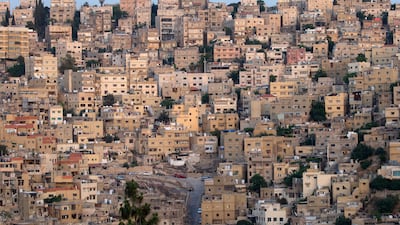King Abdullah II has told Jordan's government to set a clear timetable for building the country's new administrative capital.
The proposed city just east of Amman is the latest aspirational mega-project floated by the government in recent decades. Other projects include a desalination plant and an oil refinery.
Jordan's government has already announced plans for the city to become home to a million people.
"His Majesty affirmed the importance of going ahead with executing the new city project within clear and announced time frames, for it to be one of the main engines of the economy," state TV reported after a meeting late on Tuesday between the monarch and members of the cabinet.
It said King Abdullah directed the ministers to form a consultative committee for the project, which will be "a model for other cities" and have high environmental standards.
Jordan's government has not provided figures on how much the project will cost or when it could be completed.
But the head of a leading Middle East construction company said it would cost several billion dollars.
"They seem to be following the Egyptian model of wanting to build new cities out of scratch, when the priority should be building a transportation system and other basic measures," said the construction executive, who did not want to be identified.
"The Egyptian way is putting enormous financial pressures on the state. But Egypt has a bankable government and substantial revenue stream from the Suez Canal and other income. Jordan has nothing of that sort," he added.
The new city was included as part of an economic revival plan revealed in June. The government hopes to attract private investors to projects in industry, farming and real estate by giving them publicly owned land on a concession basis.
The economy of aid-dependent Jordan has been stagnant for more than a decade and unemployment is officially at 23 per cent. Amman has four million inhabitants, accounting for 40 per cent of the country's population.
Most of the budget goes on salaries and the majority of the infrastructure projects that have been built over the past few years have been financed by Saudi Arabia or other donors. These include the main desert road south and a new road linking Amman to Zarqa, Jordan's second city.
Government spokesman Faisal Al Shboulsaid it would take two years for the architectural plans for the new city to be completed. He said that in 2025 the government will start spending $70 million a year to build the infrastructure.
He said it would take another 25 years for the city to reach its one-million capacity, and that most government departments could eventually move there.
"It will be a modern city in every sense of the word," he said.

